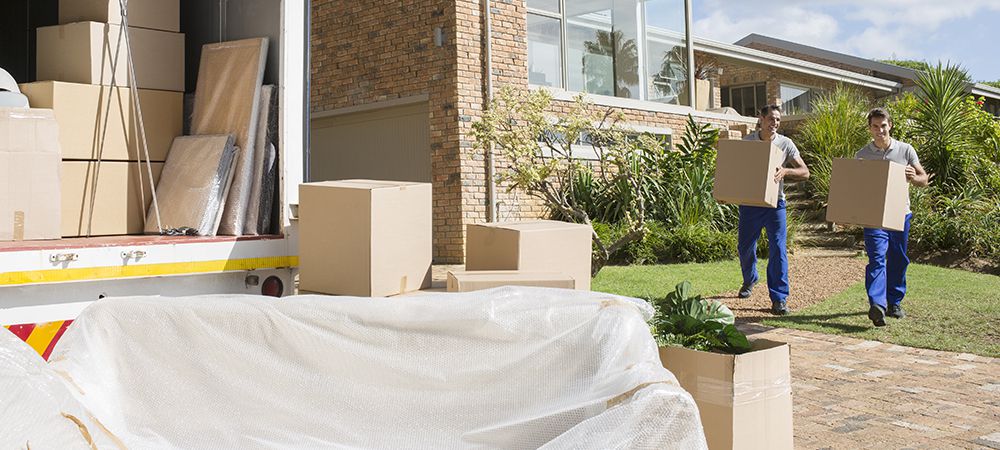Moving can easily be one of the most exciting and stressful experiences all at the same time. It can often seem like there are endless obstacles and expenses involved. However, with some planning and calculations up front you can avoid sticker shock and unnecessary costs. Early planning can also sometimes get you a better deal on your moving.
At Ontario Container Transport, we know just how much goes into moving and we work to help reduce your stress and costs. In this guide we will look at estimated household moving costs in Toronto, what can impact cost, and tips for reducing costs of moving.
What Factors Affect Moving Costs?
Some moving cost factors are pretty obvious such as the amount of things you will be moving and how long the distance is between your current home and your new home. However, less obvious factors can also impact your final costs including everything from fees for special items and even the season you move in.
Here are the top factors that affect moving costs and how you can reduce your expenses:
Size/Type of Household
Size of the household affects your costs in two ways: 1) how much space your things will take up on a moving truck and if you will need additional trucks. 2) More items means more time to load, which we discuss in the next section.
Homes with multiple levels and apartments on upper floors will also take more time. Several trips up and down stairs or even on an elevator can really add up during the moving process especially when you are paying by the hour.
Cost Saving Tips:
- Consider selling or donating items instead of paying for them to be moved. This is obviously not the best solution for all items, but make sure you are moving things that you truly want in your next home. A couch, bed, or other large furniture will take up a lot of room on a moving truck and possibly not be worth the cost if the item is older. If you do not plan to keep using an item for several more years, it may be a good candidate for the ‘sell’ pile.
- Sell items directly to the new owner. Reducing items is an especially good idea if you are moving to a smaller place. That large couch sectional that fits great in your current home may just be in the way in a smaller space. The new owner will be able to make better use of the items already there. This is also the absolute easiest transition since the items will not need to be moved at all by you or the person buying them.

How Long it Takes for Movers to Load your Items
Many factors can affect how long it takes for movers to load your items. Typically, most homes can be packed and loaded in as little as 4 hours or up to 10. A one-bedroom apartment would be on the low end at 4 while a 3-bedroom home would be closer to 10.
Some things you will not have control of such as poor weather conditions that may slow down the process. However, others can help with the cost saving tips below.
Cost Saving Tips:
- Ensure all items are packed when the movers arrive. This will not only reduce costs but make things less stressful for you as you will not be scrambling at the last minute to toss things in boxes. This will also make unpacking go smoother.
- Move as much as possible to the ground floor. This will reduce how much time will be spent lugging things up and down stairs.
- Reduce the number of things being moved by combining items into fewer containers. While super large boxes that require multiple movers may not be ideal, neither are dozens and dozens of small items that could be combined. Think in terms of how many trips will be needed to move items and try to minimize this.
Distance
The distance between your current home and your new home can affect final costs. However, If you plan to move within the city or no more than around 50km, the costs associated with distance will not be particularly noticeable. However, if you are moving from say Toronto to Edmonton, your mover will likely charge a per km price. This cost may be more than the total move itself because of the great distance.
Distance is not an element you can control but if you do plan to move well outside the city, you should consider two things 1) you will need a mover who has insurance to cover an interstate move and 2) consider reducing the items you are moving. With such a large distance, it can sometimes be more cost-effective to sell, donate, or store most items. Then, ship the items you do need versus hiring movers.
Other Cost Considerations
Moving/Packing Supplies and Equipment: While things like moving boxes and bubble wrap are fairly obvious needs, some other equipment may not be. This includes things like extra straps to keep items in place on the truck, materials to guard corners of furniture, covers to protect upholstery and more.
Many movers may provide some of these things, charge an extra fee to put them on, or possibly not provide them at all. Generally, if you can buy and put these things on yourself, you will save money. Most importantly, you should find out before the day of the move if you will need them and if the mover provides them.
Special Handling: Both fragile and very heavy items typically require special handling fees. Pianos are one of the most common examples of items that will increase cost due to weight and size. Moving a piano can add several hundred to your total costs. This is because you are likely to need additional movers and also because pianos are expensive. The value of a piano means the movers need to exercise special caution to avoid damage and may even need additional insurance.
When You Move Affects Costs
Similar to how certain flights can be more expensive simply because of the day of the week, moving is also affected by when you move. Typically, the most expensive times to move are during the summer, the beginning of the month, and on a weekend. This is because these times are when most people want to move which means movers are in shorter supply. Many movers may increase rates for each of these instances and it may be difficult to even get a mover at all.
Cost Saving Tip: If possible, incorporate any or all of the following into your moving date:
- Move during the fall or winter
- Move on a weekday
- Move during the second half of the month
Average Moving Costs in Toronto
While your individual move will vary based on the above factors, there are some rough guidelines. Typically, moving costs in Toronto will range from around $400 for a one-bedroom apartment up to around $2,000 for a 4-bedroom house.
Most people can expect to pay somewhere between these two amounts unless they have special circumstances. This includes things such as a cross-country move, many large or fragile items that require special care, or assembly/disassembly needs.
Calculating Your Moving Costs in Toronto
Still have questions about your total costs? The Ontario Container Transport team is here to help. Contact us today with all your moving questions and to receive a personalized cost estimate!




